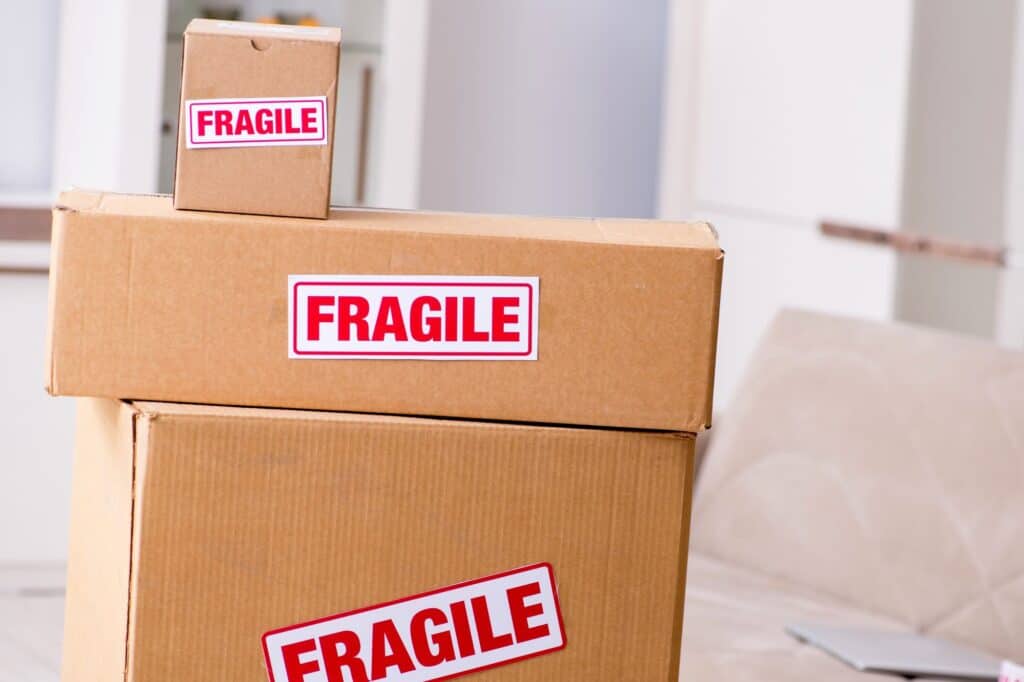Curious about home removals services cost in the UK? Typically, prices range from £350 to £1,304, influenced by property size, move distance, and additional services like packing and storage. These costs can vary significantly based on the specifics of your move. This guide will explain these factors to help you estimate your moving costs, ensuring you are well-prepared and can budget effectively for a smooth transition to your new home.
Key Takeaways
- Typical costs of home removal services in the UK range between £50-£80 per hour for two professionals with a van, but overall costs can vary significantly based on property size, distance, and additional services.
- Factors influencing removal costs include the volume of items, property accessibility, and the timing of the move; planning and flexibility can help manage these costs effectively.
- To save money on home removals, consider decluttering before the move, comparing multiple quotes, and booking services well in advance.
Typical Costs for Home Removals Services
Home removal services in the UK typically cost between £50-£80 per hour for two professionals and a van. For a 3-bedroom home, the costs can vary significantly, with average removal costs around £555, but reaching up to £1,304 depending on various factors. These house removal costs are influenced by the size of the property, the distance of the move, and additional services like packing and storage.
By grasping the common costs, you can better manage your budget and prevent unexpected charges on your moving day.
Average removal costs by property size
The size of your property is a major determinant of removal costs. For smaller homes in Wood Green, such as 1-2 bedroom houses, you can expect to pay between £350 and £550 for moves within 20 miles. This price increases as the property size grows. Moving a 3-bedroom house typically costs around £555, but this figure can rise to £800 for moves within 20 miles.
If you’re moving a larger property, like a 4-bedroom house, the costs can escalate to about £1,100 for local relocations within 20 miles. This price increase accounts for the extra workforce and bigger vehicles necessary to transport a greater quantity of belongings.
Removal costs based on distance
The distance between your current and new home plays a critical role in determining long-distance removal costs. Here are some factors to consider when estimating removals costs:
- Local moves within Wood Green are generally more affordable than long-distance relocations.
- On average, removal companies charge £35 per hour and £1.50 per mile, which contributes to the overall removal company cost.
- The cost increases with the moving distance, emphasising the need for careful planning and budgeting.
Additional removal services and their costs
Additional services can significantly impact the cost of your move. Packing and unpacking services, for example, can add around £250 to your total bill. If you need furniture dismantling and reassembly, this typically costs about £125 for items like beds.
You may also need to consider the cost of storage services. If you encounter delays or your new home is not ready for immediate occupation, temporary storage might be necessary. Given the variability in storage fees, it’s prudent to inquire about these charges beforehand.
Special handling services, such as crating valuable items or moving fragile items, can also incur additional fees from a packing service.
Factors Influencing Removal Costs

Several factors influence the cost of moving house, beyond just the size of the property and the distance of the move. The volume of items being moved, the accessibility of both properties, and the time of year or day of the week can all significantly affect the final bill.
Comprehending these factors enables more effective planning and potential cost reduction.
The volume of items being moved
The volume of items you need to move is a primary factor in determining removal costs. Larger loads require more labour and potentially larger vehicles, which can drive up the price. For instance, moving a fully furnished 4-bedroom house will typically be more expensive than a sparsely furnished 1-bedroom flat due to the sheer volume of items. The size of your property and the amount of packing materials required also play roles in the overall cost. Packing materials such as boxes, bubble wrap, and tape can add to the expense, especially if you have many fragile or valuable items that need extra protection.
Additionally, the type of items being moved can influence the cost. Bulky or awkwardly shaped items like pianos, large furniture, or delicate antiques may require special handling, increasing the labour and time needed. Removal companies often charge extra for these items due to the additional care and equipment required. Therefore, it’s beneficial to declutter and organise your belongings before the move to potentially reduce the volume and, consequently, the cost. Efficient packing and labelling can also streamline the moving process, making it quicker and less costly.
Accessibility of properties
Accessibility can significantly impact your removal costs. Properties with narrow streets, high-rise flats without lifts, or multiple flights of stairs can result in additional removal costs due to the increased time and effort required.
In some cases, specialist equipment, such as a cherry picker lift, may be required to move large items, which would increase costs. Recognizing potential access challenges during a pre-move survey can facilitate better planning and budgeting for these extra costs.
Time of year and day of the week
The timing of your move can also affect costs. Moving during peak seasons, such as summer, often incurs higher rates due to increased demand. Conversely, moving during quieter months like January or September can be more affordable.
Relocating on weekdays is usually cheaper than on weekends, thus your flexibility could lead to substantial savings.
How to Save Money on Home Removals
Saving money on house removals is possible with a bit of planning and strategy. Decluttering before the move, comparing multiple quotes, and booking in advance are all effective ways to cut costs.
Following these steps can pave the way for a seamless move that’s easier on your pocket.
Declutter before moving
Decluttering is a straightforward way to reduce removal costs. By donating, selling, or disposing of items you no longer need, you can significantly decrease the volume of items to be moved, thereby lowering the overall cost. This also reduces the number of packing boxes and materials needed. Begin the decluttering process well in advance of your move to avoid last-minute stress. Sort through each room systematically, deciding what to keep, donate, sell, or discard. Items in good condition can be sold online or at a garage sale, potentially earning you some extra money to offset moving expenses.
… an opportunity to reassess what you truly need and cherish, allowing you to part with items that no longer serve a purpose.
Additionally, decluttering can make your new home feel more organized and spacious from the start. It provides an opportunity to reassess what you truly need and cherish, allowing you to part with items that no longer serve a purpose. This not only simplifies the packing process but also makes unpacking more manageable, as you’ll have fewer items to sort through and find places for in your new home. An organized move can lead to a more efficient and less stressful relocation experience, setting the tone for a fresh start in your new space.
Compare multiple quotes
Comparing quotes from different removal companies in Wood Green ensures you get the best deal for your budget. Use removal cost calculators to get instant online quotes from several reputable companies.
Checking reviews and costs before booking can help you avoid surprises and secure the best price for your move.
Book in advance
Booking your removal services well in advance, ideally 4-6 weeks before your move, can save you money and ensure availability on your preferred moving day. Early booking also allows you to budget more effectively and accommodate any last-minute changes. By securing your moving date early, you can avoid the higher costs often associated with last-minute bookings, which can be significantly more expensive due to limited availability and increased demand. This proactive approach not only helps in getting the best rates but also provides ample time to plan other aspects of your move, such as packing and notifying utility companies.
Additionally, booking in advance gives you the opportunity to compare different removal companies and their services, ensuring you choose the one that best fits your needs and budget. It also allows for flexibility in case you need to make adjustments to your moving date or require additional services, such as packing or storage. Early booking can also facilitate smoother coordination with other service providers, such as cleaners or decorators, making the entire moving process more streamlined and less stressful. Therefore, planning ahead and booking your removal services early is a key strategy for a cost-effective and hassle-free move.
The Importance of a Pre-Move Survey
A pre-move survey is vital to get a precise quote and ensure a hassle-free relocation. It enables the removal company to evaluate the amount of belongings, access to the property and any special needs. This proactive approach can help avert unforeseen expenses and issues on a moving day.
What to expect during a pre-move survey
During a pre-move survey, the surveyor will inspect all areas of your home, including:
- living rooms
- kitchens
- offices
- lofts
- sheds
They will assess the volume of items to be moved, any access issues, and items needing special care.
A good removal company will offer this service, just like most removal companies, to create a detailed moving plan, ensuring accurate quotes and a smoother moving experience with a reliable removal firm.
Avoiding underestimated volumes
Guaranteeing precise estimates of the volume during the pre-move survey is key to preventing additional charges from the removal company. Here are some tips to help you with this process:
- Truthfully disclose the number of items you have.
- Account for easily forgotten spaces like basements or garages.
- Take measurements of large furniture items to ensure accurate volume calculations.
- Communicate any special requirements or considerations to the removal company.
By following these tips, you can ensure that you receive an accurate quote and avoid any surprises on moving day.
NOTE
A pre-move survey in Wood Green is essential for obtaining an accurate quote and ensuring a smooth relocation. It allows the removal company to assess your belongings and property access, helping to prevent unforeseen expenses on moving day.
Understanding Removal Insurance
Removal insurance is crucial for safeguarding your belongings during the move. Various types of insurance, including goods in transit and comprehensive moving insurance, provide different coverage levels.
Securing appropriate insurance can offer tranquillity during the relocation.
Types of removal insurance
Goods in transit insurance covers your belongings while they are being moved, but generally does not cover storage. Comprehensive moving insurance, on the other hand, offers broader coverage, including theft, collisions, and weather damage.
Some removal companies also offer additional insurance for high-value items like antiques or electronics. For international moves, it’s crucial to ensure the removal company has appropriate international removals insurance.
Checking your coverage
Before moving, check if your existing home contents insurance includes coverage for items in transit. Verify the details of the removal company’s insurance policy to understand claim limits and ensure your valuables are adequately covered.

Hidden and Unexpected Costs
Hidden and unexpected costs can catch you off guard during the moving process. Common surprises include late key waivers, waiting time fees, and extra costs for special items.
Being cognizant of these potential charges can aid in more precise budgeting.
Late key waivers and waiting time fees
Delays on moving days can lead to unexpected charges. Most removal firms offer a late key waiver for around £40-£50 to avoid higher waiting charges. This fee is essentially an insurance policy against delays in gaining access to your new property, providing a buffer period that prevents the clock from running on expensive hourly rates.
Waiting time fees can quickly add up, especially if the delay is significant, so it’s wise to inquire about these potential fees in advance and consider negotiating terms with your removal company. By understanding and planning for these contingencies, you can avoid surprises and better manage your moving budget, ensuring a smoother and less stressful transition to your new home.
Extra costs for special items
Special items that require extra care or special handling can incur additional costs. For example, moving a piano or handling fragile items like glassware or artwork might add £100 to £200 to your bill. Beyond these, items such as antique furniture, oversized sculptures, or high-end electronics may also necessitate specialised packing materials and techniques, potentially increasing your expenses further.
Additionally, if any of these items require disassembly and reassembly or the use of special equipment like cranes or hoists, the costs can escalate even more. Being aware of these potential extra costs and discussing them with your removal company in advance can help you plan your budget more effectively and avoid any financial surprises on moving days.
Summary
Understanding moving costs can reduce stress and ensure a smoother transition. By being informed about typical costs, influencing factors, insurance, and hidden fees, you can plan and budget effectively. Key considerations include property size, move distance, and additional services like packing and storage. Be mindful of hidden costs such as late key waivers and waiting time fees. Comparing quotes, checking reviews, and booking in advance can help secure the best deals. Decluttering before your move can also reduce costs. Understanding removal insurance options and ensuring adequate coverage can offer peace of mind. Effective planning and communication with your removal company are essential for a smooth, cost-effective, and stress-free move to Wood Green.
Frequently Asked Questions
What are the typical costs for home removals in the UK?
Home removal services in the UK typically cost between £50-£80 per hour for two professionals and a van, with the average cost for moving a 3-bedroom house ranging from £555 to £1,304, depending on factors such as distance and additional services required.
How does the size of my property affect removal costs?
The size of your property will affect removal costs. Generally, the larger the property, the higher the removal costs can be.
How can I save money on home removals?
To save money on home removals, declutter before the move, compare quotes from different companies, and book removal services in advance. This can help you cut down on unnecessary costs and secure the best deals.
What is a pre-move survey, and why is it important?
A pre-move survey is important because it helps obtain an accurate quote and plan the move by assessing the volume of items, property access, and any special requirements, thereby avoiding unexpected costs and complications on a moving day.
What types of removal insurance are available?
You can choose from goods in transit insurance to cover your belongings during the move, or comprehensive moving insurance for broader protection including theft, collisions, and weather damage.







